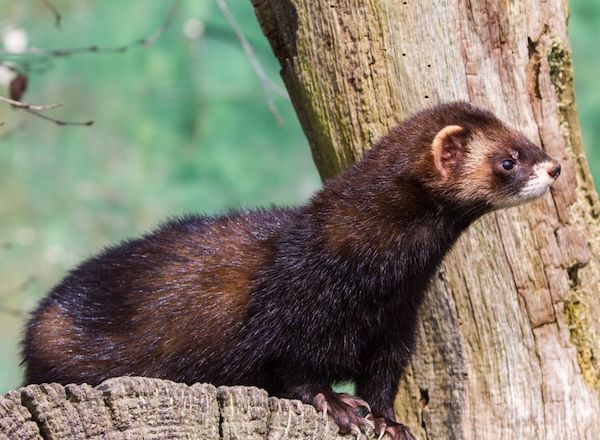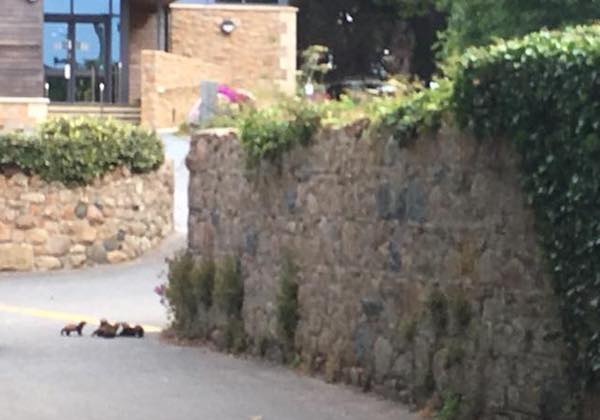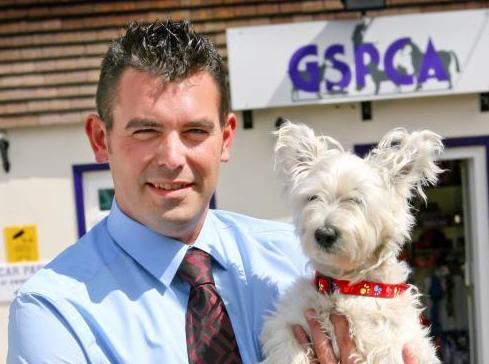

Large colonies of feral ferrets are becoming pests on the island as they are breeding in the wild and numbers are increasing year on year.
Ferrets are the domesticated form of polecats, and are mammals belonging to the weasel family. Many of the ferrets on the island have originated from domesticated animals that have now found their homes in rural locations.
David Chamberlain, States Veterinary Officer said: "Feral ferrets have been recognised as an issue for the last three years in Guernsey and there is a large body of evidence that they are breeding in the wild. Feral Ferrets are not indigenous to Guernsey and are a non-native invasive species. There are widely published photos and videos of juvenile ferrets on social media in Guernsey and juvenile feral ferrets have been caught in live traps and killed in road traffic collisions on roads."
"Currently the Jerbourg area of St Martin we seem to have high numbers. However previous surveys have established that the feral ferret population has been represented in every Parish of Guernsey. Studies in other jurisdictions indicate that 75% of a feral ferrets diet is wild rabbits so they are often found near wild rabbit colonies."
Express asked Mr Chamberlain if this was an issue that needed to be addressed.
In the past, opinions have been divided on how the issue of feral ferrets should be managed. While they do pose a threat to domestic animals such as pet rabbits and chickens, and also indigenous wildlife, Mr Chamberlain said some people "seemed content" for the ferrets to take wild rabbits and rats .
"The rabbit population on Guernsey is best described as patchy and what role feral ferrets play in this distribution is unknown. However we do know that the local wild rabbit population is under pressure from diseases such as myxomatosis and rabbit viral haemorrhagic disease types 1 and 2 (RVHD-1 & RVHD-2). Only last week we had another confirmed case of RVHD-2 on Guernsey.
"If feral ferrets found their way to the ground nesting bird colonies on Lihou or Jethou they could decimate these populations. For such reasons ferrets are banned for New Zealand and Hawaii. In the Isle of Man, which has had feral ferrets for 500 years, they simply manage them when they become a problem by using licenced spring traps or shooting.
"Guernsey is very much a suburban environment and perhaps we should manage the feral ferret population now. Some people such as Jeff ‘Otto’ Le Gallez is helping people whose pets or livestock are threatened by feral ferrets to live catch them. Once caught Jeff assesses them and rehabilitates them into pets."

Pictured: A photo shared on Guernsey wildlife group of feral ferrets in Cobo with seven babies.
As things stand now, those with livestock can catch the ferrets and then euthanise them in an agreed, humane way. While the euthanising of wild animals is not strictly compliant with the law, stock owners do also have a responsibility to protect their animals.
Mr Chamberlain added that one solution could be to add the animals to a pest list. This would enable local registered pest controllers and licensed livestock keepers to manage feral ferrets when they because a problem. To avoid euthanising a recently escaped pet ferret, Mr Chamberlain stipulated that all live caught ferrets must be scanned for a microchip before euthanasia.
"In preparation for this I advise all owners of pet ferrets have them microchipped as soon as possible thereby increasing their chances of being reunited should they escape and become stray."

Pictured: Steve Byrne, GSPCA Manager
Steve Byrne, GSPCA Manager said: "We have been made aware of two mothers with young that have been spotted recently but when we compare numbers of ferrets we have seen less in the last two years than in previous years. For almost three months over the Spring we had no ferrets in our care and none came in which was unprecedented"
"Saying this we have had 5 ferrets arrive in the last few weeks which is a little concerning and we would ask the public to watch out for them as they do predate on our wildlife and even poultry and possibly other pet animals. The ferrets in our care if not claimed in 21 days will be put up for adoption and they can make fantastic pets and anyone interested please do keep an eye on our website or please get in touch."
Comments
Comments on this story express the views of the commentator only, not Bailiwick Publishing. We are unable to guarantee the accuracy of any of those comments.